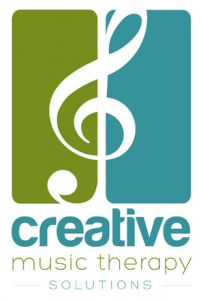Nadine Cadesky
PhD, MTA, MT-BC, FAMI

Credentials:
- PhD (music therapy), Temple University
- MTA (Music Therapist Accredited), Canadian Association of Music Therapists
- MT-BC (Music Therapist–Board Certified), Certification Board for Music Therapists
- FAMI (Fellow of the Association for Music and Imagery), Association for Music and Imagery
Populations you specialize with:
- Survivors of intimate partner violence and sexual violence and the staff who work with them
- Inpatient and outpatient mental health
- Therapists and other individuals doing their own personal therapy (music therapy, Bonny method of guided imagery and music, and mandala work)
- Persons with complex terminal conditions including HIV/AIDS, ALS, Huntington disease, other neurodegenerative disease, and end-stage cancer (long-term care and hospice setting)
- Elders with dementia
- Persons with traumatic brain injuries
Special Skills/Related Training:
- Experience facilitating individual and group tele-health sessions
- Advanced training in music psychotherapy and medical music therapy methods and in the use of client-produced mandala drawings as assessment and treatment tools
- Undergraduate music therapy teaching experience
- Experience as clinical and academic music therapy supervisor
- Past editor, Canadian Journal of Music Therapy
- Research experience, prolific presenter, and published author
- Reiki (level I)
Personal History: I was in the middle of a jazz voice lesson in the early ’90s when my teacher asked, “Have you ever thought of becoming a music therapist?” I replied, “What is music therapy?” I knew I loved to sing, I knew I loved to perform, and I knew the role music had played in my own emotional life. But I had not heard of music therapy, nor did I know what it was.
Soon after, as a new music therapy student, I entered the classroom the first day still wondering, “What is music therapy?” And then the professor played a clip of a young child with special needs who became animated and engaged in a music experience with his music therapist, and I was deeply impacted. I began to understand that music therapy could be a way to reach someone and to help them have meaningful experiences and growth. Little did I know then how much I would come to understand about the potential and impact of music therapy with my own clients in a career that to date has spanned more than two decades.
Professional History: In my early years of practice, I specialized in a voice-centered improvisational way of working with persons with advanced dementia. I also saw a wide variety of clients in my private practice, and supervised music therapy students onsite in my clinical settings.
After eight years of practice, I went to graduate school and earned my master’s and PhD in music therapy. While I was at graduate school, I taught and supervised music therapy students, and I also did work in inpatient psychiatry and with persons living with HIV/AIDs.
When I returned to the west coast of Canada, I began to work with Creative Music Therapy Solutions. My clientele was persons on the spectrum, with developmental disabilities, with acquired brain injuries, and with dementia. I also had a small practice working with persons using music therapy for personal growth.
When I moved to the United States in 2015, I took a position working at a hospice that specializes in work with persons with HIV/AIDs, ALS, Huntington disease, end-stage cancer, and other terminal conditions. I also took a position in inpatient behavioral health. I finished my training in the Bonny method of guided imagery and music and began seeing BMGIM clients.
In the last couple of years, I have been leading music therapy workshops with survivors of sexual and intimate partner violence and support workshops with the staff who serve them. Since March 2020 I have facilitated both individual and group telehealth sessions with clients and the staff who serve them.
Work Philosophy: I help clients to explore, express, process, and work through issues and feelings; to identify and strengthen inner resources; to build self-compassion and a greater awareness of personal strengths and abilities; to release tension and anxiety; to build coping mechanisms; and to gain insight. My work is client-focused and is influenced by humanistic, existential, developmental, psychodynamic, and Jungian perspectives.
Personal Life Philosophy: I see life in greys and feel there are many truths. I do my best to be a compassionate, caring human being and to understand where I and others are coming from in our daily interactions. In my own life, I value lifelong learning and work-life balance.
Favourite Quotes:
“In the midst of hate, I found there was, within me, an invincible love. In the midst of tears, I found there was, within me, an invincible smile. In the midst of chaos, I found there was, within me, an invincible calm. I realized, through it all, that in the midst of winter, I found there was, within me, an invincible summer. And that makes me happy. For it says that no matter how hard the world pushes against me, within me, there’s something stronger—something better, pushing right back.” - AAlbert Camus
